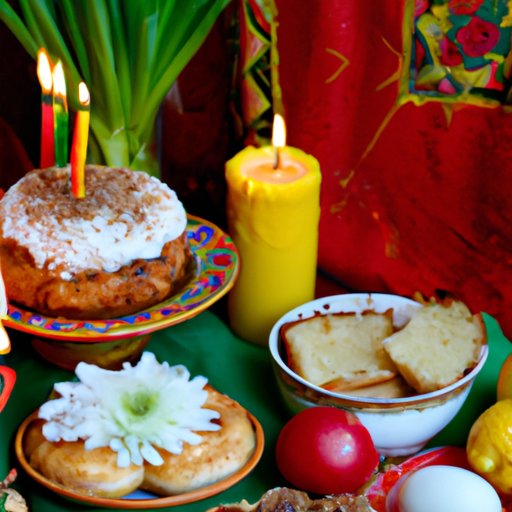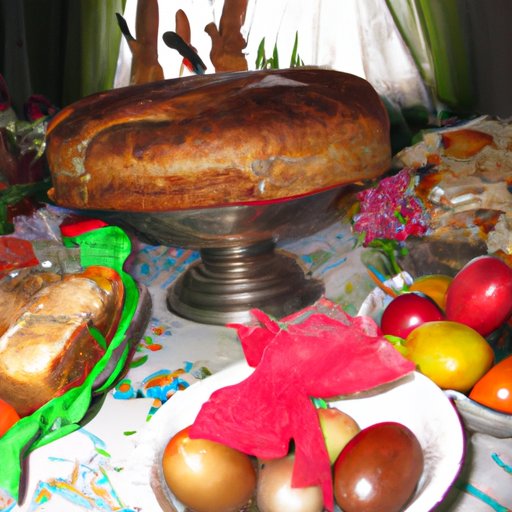Introduction
Easter is a Christian holiday that celebrates the resurrection of Jesus Christ. It is one of the most important holidays in the Christian calendar, and is celebrated by millions of people around the world. The exact date of Easter changes each year, but usually falls between March 22 and April 25.
The celebration of Easter has roots in both religious and cultural traditions. Many of the symbols and traditions associated with Easter have been adopted from pagan cultures and adapted to fit the Christian faith. This includes the Easter bunny, which is a symbol of fertility and new life, and egg decorating, which has been part of many cultures for centuries.

Symbolism and Meaning of Easter Traditions
The traditional symbols and customs associated with Easter can be divided into two categories: religious and cultural. On the religious side, Easter is a time to celebrate the resurrection of Jesus Christ, which is seen as a sign of hope for Christians. The religious symbols associated with Easter include the Easter lily, which is a symbol of purity and resurrection, and the crucifix, which is a reminder of Jesus’ death and resurrection.
On the cultural side, Easter is a celebration of new life and fertility. This is why many of the symbols associated with Easter are related to animals, eggs, and flowers. The Easter bunny is a popular symbol of fertility and new life, while egg decorating has been part of many cultures for centuries. Other popular symbols include chicks, ducks, and lambs, all of which are symbols of springtime and new beginnings.
How Easter Is Celebrated Around the World
Easter is celebrated in many different ways around the world. In the United States, Easter usually involves a church service, followed by a family gathering. Popular Easter foods include hot cross buns, ham, and deviled eggs. Egg hunts and Easter egg decorating are also popular activities for children.
In other countries, the traditions vary widely. In Greece, Easter is known as Pascha and is celebrated with feasting and fireworks. In Germany, Easter baskets filled with candy and treats are exchanged among family and friends. In Italy, Easter is celebrated with processions and parades, and in Mexico, Easter is marked with colorful decorations and processions.

How to Plan an Easter Party
An Easter party is a great way to bring family and friends together to celebrate the holiday. To make your Easter party a success, there are a few things to keep in mind. First, decide on a theme for your party. You could go with a classic look, such as pastel colors and bunny decorations, or you could choose something more modern, like a garden-themed party.
Next, plan your menu. Popular Easter dishes include ham, deviled eggs, hot cross buns, and roasted vegetables. You can also add some fun desserts, like cupcakes decorated with bunny ears or chocolate-covered strawberries. Finally, don’t forget the entertainment! Activities like egg hunts, Easter-themed crafts, and games will keep your guests entertained throughout the day.
Conclusion
Easter is a special holiday that celebrates the resurrection of Jesus Christ and the promise of new life. It is celebrated in many different ways around the world, and the traditional symbols and customs associated with Easter have deep religious and cultural meaning. From religious services to egg hunts and Easter parties, there are many ways to honor the true meaning of Easter and enjoy the holiday with family and friends.
(Note: Is this article not meeting your expectations? Do you have knowledge or insights to share? Unlock new opportunities and expand your reach by joining our authors team. Click Registration to join us and share your expertise with our readers.)
